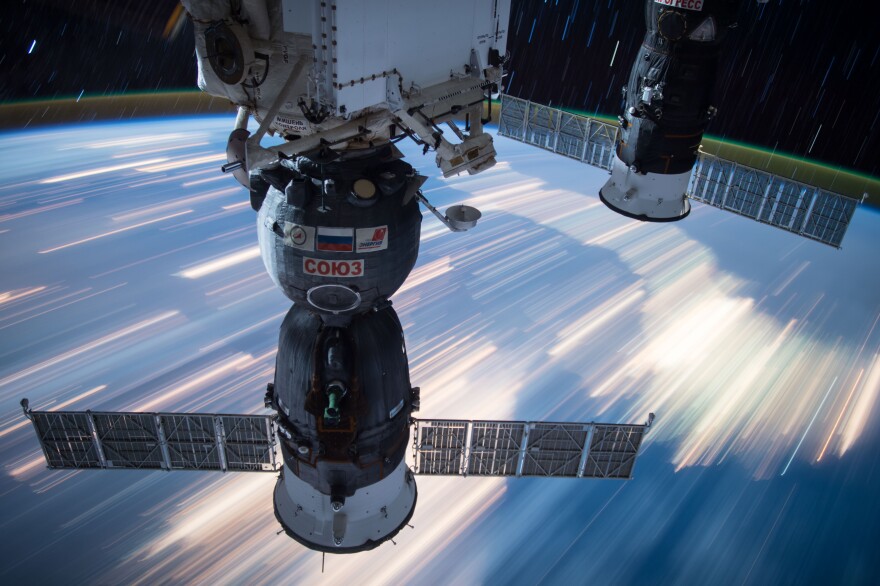Think about those moments when it seemed pretty much the whole nation was gathered around the TV set: the moon landing. A Super Bowl. A hit TV show — these days, maybe Game of Thrones.
Could it be that the time in front of the TV might be the secret weapon that helps future space travelers handle those ultra-long voyages?
Jan Van den Bulck, a professor of media psychology at the University of Michigan, joined Stateside to talk about how media can play a role in astronauts’ mental well-being.
“Up until now, any space mission has involved a lot of work. But when we reach out to something like Mars, it’s going to be a lot of waiting,” Van den Bulck said.
Prevailing wisdom might tell us that the solution to this boredom might be to send plenty of DVDs and books along for the journey, but Van den Bulck doesn’t entirely agree.
“I think that’s not enough, because the media can do much more than that,” he said. To him, media is more than just entertainment.
1. It’s a way to structure time
In space, there’s no day or night, and nothing to distinguish Wednesday from Sunday or August from December. Van den Bulck realized that, on Earth, we mark time passing not only by the weather changing, but also by watching television.
“The media have always played a large role in defining season,” Van den Bulck said. “It’s the Christmas season and you see that because television is telling you all the time – adverts are telling you, movies are telling you – so that’s telling you another year has passed.”
He thinks we can simulate that same passage of time in space by streaming episodes or media events on a schedule for astronauts.
Van den Bulck said that by keeping astronauts from binge watching, they will be “forced to acknowledge that it’s Thursday” the same way we are on Earth, “and that’s what anchors us.”
2. It’s a way to create group bonds
“Even though a lot of us feel that [watching television] is passive behavior, it still does something to us,” Van den Bulck said. “It’s creating a kind of bond by being able to watch something together.”
Having roommates can be challenging, but it’s on another level when you’re all trapped in space together. According to Van den Bulck, group television viewing can help facilitate these group bonds when room and resources are limited.
“It’s a very simple way of creating a tiny community,” he said. “There is not much cause for conflict with that kind of stuff, and you don’t need to move. You can do it when you’re cooped up in a tin can.”
3. It’s a way to maintain cultural roots
Consuming media from our native cultures can keep us connected to home. Van den Bulck calls this “heritage maintenance” and said letting astronauts keep up with modern earth trends will keep them in touch with their home culture.
“A big effect of the media is telling us about fashion, changes in language,” Van den Bulck said. By allowing astronauts access to modern media from home, they’ll be able to keep up with Earth.
Listen above for the full conversation.
(Subscribe to the Stateside podcast on iTunes, Google Play, or with this RSS link)





